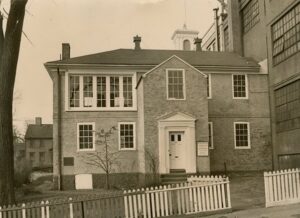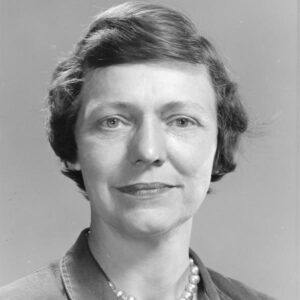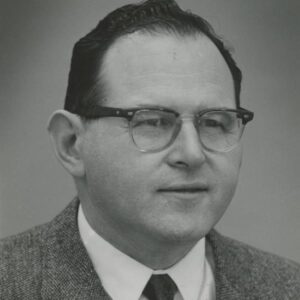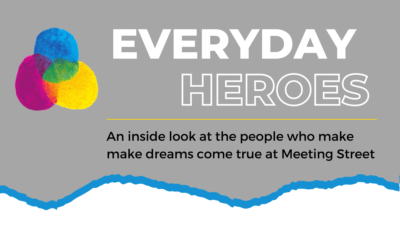About
Our Mission
Meeting Street compassionately and innovatively empowers children and their families to thrive by fostering the development of the whole child.
Our Values
Respect, compassion, integrity, inclusivity, excellence.
We are a values-based organization and strive to live the values of respect, compassion, integrity, inclusivity, and excellence. We believe these values cannot genuinely manifest themselves in any organization that has not examined its structural racism and is actively working to change. Meeting Street believes in creating an environment that seeks to identify and undo racial inequities present in the workplace and in the education and developmental support provided to the children and families we serve.
Our History

Founded in 1946, "The Meeting Street School" - named after the street upon which it was located - was the nation's first school to provide comprehensive educational, therapeutic and developmental services to children with disabilities and special needs.
Meeting Street, as it is now known, was founded by Margaret “Poggy” Langdon and Dr. Eric Denhoff based on the belief that all children have a right to high-quality education and a developmental support system in order to reach their full potential.
Learn more about Meeting Street's History
To meet the growing demand for services, Meeting Street relocated to the Butler Hospital campus in 1957. That same year, Meeting Street entered a collaborative long-range Child Development Study with Brown University, focusing on children with cerebral dysfunction.
By 1969, a cohort of our professionals received national recognition for their development of the Meeting Street School Screening Test to evaluate kindergarten and first-grade students for the early identification of learning disorders.
In our 30th year, the need for even more space prompted the move to the former Nicholson File Company in East Providence. The next year, we developed what was at the time an innovative “mainstreaming” program to prepare teachers, parents, and others in the community to embrace children with acceptance and understanding. Today, we refer to this as inclusion and it is the cornerstone of our educational model.
In the 1970s we introduced a new team concept of psychological/developmental evaluations; this model is ultimately accepted as a best practice by the educational and medical community.
Based on the success of our own Early Intervention program and our growing national reputation, Meeting Street was chosen as one of five institutions in the United States to receive a federal grant to develop a comprehensive service delivery model to meet the educational and developmental needs of young children with disabilities. Meeting Street’s Early Intervention program became a forerunner and model for the federal program established in the 1980s and is still practiced today across the country.
In December 2006, Meeting Street opened our custom-designed 80,000 square foot building on a nine-acre campus in the heart of Providence. Our philosophy of inclusion was built into the design of this facility and the launch of our pioneering school, The Grace School was born with a vision of a fully inclusive elementary education program where all children of all abilities learn and grow together. Upon moving to our new campus Meeting Street was awarded the prestigious LEED environmental excellence approval and was the first school in the State to receive this honor.
In 2010, the Providence Business News named Meeting Street a recipient of the Business Excellence Awards for “Excellence in a Nonprofit Organization.” This year also marked a focus on strategically growing our Early Childhood services. Later in 2010 Meeting Street became an Early Head Start (EHS) provider to support parents' efforts to fulfill their parental roles, and move families toward self-sufficiency.
Building on our work in early childhood development, the following year Meeting Street created an early childhood pipeline of services, called The Olneyville Early Childhood Initiative that created a neighborhood model with a goal of harnessing early childhood services to ensure Providence’s children enter kindergarten healthy and ready to learn.
In 2012 Meeting Street was awarded a grant to allow us to be a provider of Healthy Families America, a national evidence-based maternal and child home visiting program that provides free, voluntary, confidential services.
Soon after, Meeting Street played a lead role in the pilot phase of Providence Talks, a groundbreaking literacy development home visiting program established by the City of Providence and through the support of the Bloomberg Foundations.
In July 2014, Meeting Street merged with The Schwartz Center for Children based in Dartmouth, Massachusetts. Founded in 1947 as The Cerebral Palsy Council of Greater New Bedford, the program was started in 1947 by a parent - Agnes “Posa” Raposa - who was frustrated by the lack of services available locally to her son born with cerebral palsy.
In 1971 the Cerebral Palsy Clinic was renamed The Schwartz Center for Children in honor of Dr. Isaac H. Schwartz, the founding medical director of the Center, who dedicated his life to treating children across the South Coast.
The legacy of Posa and Dr. Schwartz lives on today in Meeting Street Massachusetts, which operates The Schwartz School and Meeting Street's community-based early childhood programs for children with - or at risk for - developmental delays across Massachusetts' South Coast.
Meeting Street's Founders
Margaret “Poggy” Langdon (1904-2001)

Co-founder and educator, Poggy Langdon firmly believed in every child’s unlimited potential and was a leading force behind Meeting Street’s combination of educational and clinical services.
She helped create our vision of an inclusive community where children of all abilities could discover their talents, develop their skills, and live life to the fullest.
Dr. Eric Denhoff (1913-1982)

Co-founder and one of Meeting Street’s earliest visionaries, Dr. Eric Denhoff was an accomplished pediatric neurologist and a true leader in advancements for children with disabilities.
Together with Margaret “Poggy” Langdon, Dr. Denhoff established Meeting Street (RI) to provide integrated educational, therapeutic and developmental services to children with disabilities and developmental delays. Dr. Denhoff volunteered his services as Meeting Street’s medical director for 35 years, until his death in 1982.
Agnes "Posa" Raposa

Our Massachusetts programs began in 1947 when a parent, Agnes “Posa” Raposa, found that there were no local services available for her son who was born with cerebral palsy. She dedicated her life to helping children with disabilities and was the driving force behind the foundation of the Cerebral Palsy Council of Greater New Bedford (later known as The Schwartz Center for Children). The Council established the region’s first educational and treatment opportunities for children with cerebral palsy, and soon added therapies and a number of other programs.
Dr. Isaac H. Schwartz

In 1971 the Cerebral Palsy Council was renamed The Schwartz Center for Children in honor of Dr. Isaac H. Schwartz, the founding medical director of the Center, who dedicated 25 years to serving children across Massachusetts' South Coast.

Please support Meeting Street today by making a gift online.

Subscribe
Sign up for e-News!
Inspirational stories and community updates.

